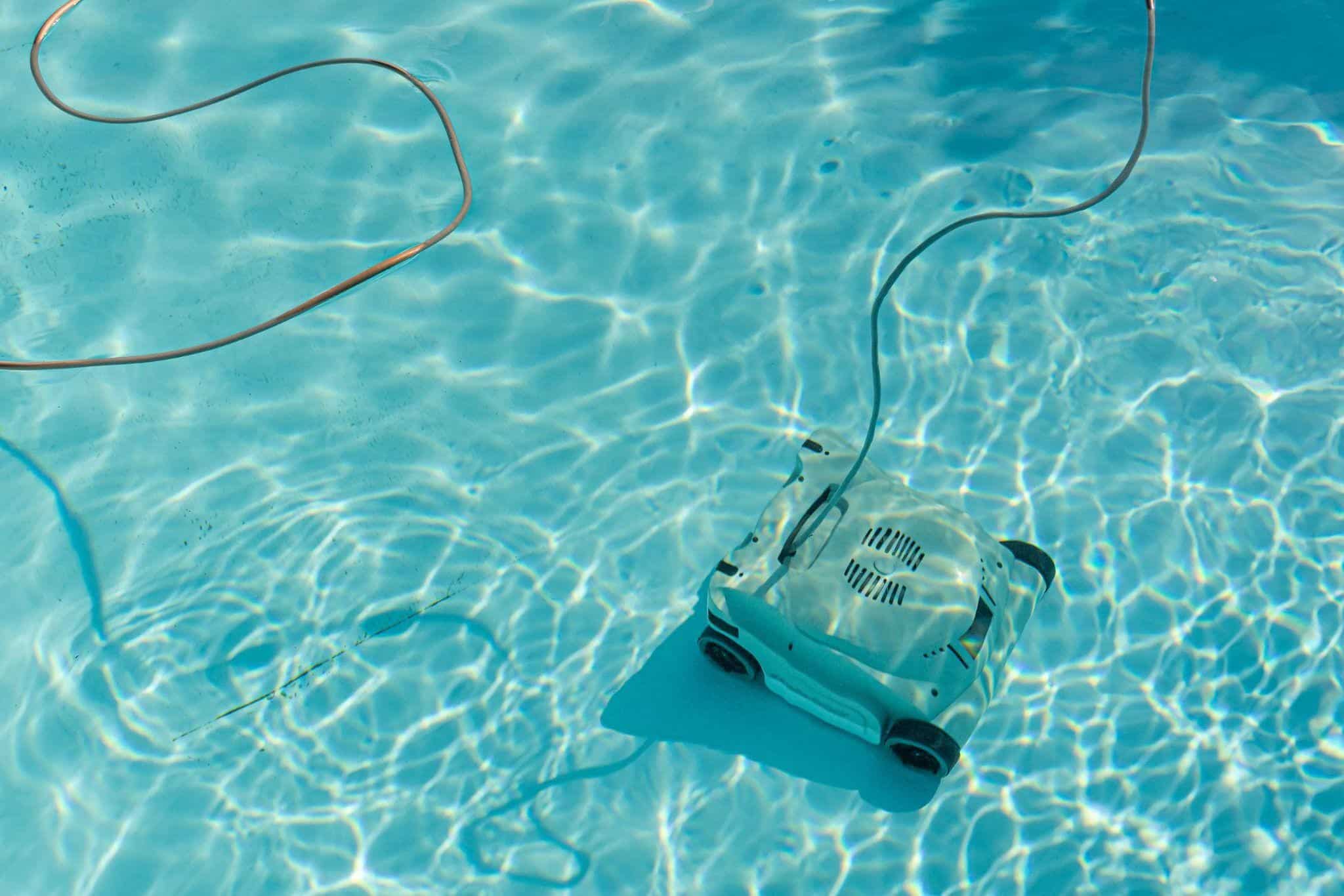
Cleaning your pool and keeping it in tip-top shape can feel like a never-ending battle, stealing the peace your pool ought to provide. We’ve heard from a lot of folks wondering about automatic pool cleaners. They claim to do all the hard work for you—just set it up and forget it, or so they say. Well, not quite. Sure, they can definitely be a helpful tool to have on hand, but they’re not always the miracle solution they appear to be.
If you're stuck between investing in an automatic cleaner or seeking the help of professional pool cleaning services, you’re in the right spot. What follows are the real pros and cons of using an automatic pool cleaner so you can make the best choice for your pool.
There are a few different types of pool cleaners available on the market, each boasting unique features. The most common ones include:
1. Robotic Cleaners
These are probably the most advanced of the bunch. Robotic cleaners are basically tiny robots that scrub your pool floors and walls. You just plug them in, drop them in the pool, and let them do their thing. The downside? They can be pricey, and like most gadgets, they need regular maintenance and can break down over time.
2. Suction-Side Cleaners
These cleaners connect to your pool’s filtration system and use the suction power to move around, cleaning up dirt and debris as they go. Think of them like a vacuum for your pool. They’re usually more affordable than robotic cleaners but can put extra strain on your pool’s pump and filter, which may require more maintenance in the long run.
3. Pressure-Side Cleaners
Pressure-side cleaners use water pressure from your pool’s pump to move around and collect debris in a separate bag. These are great for picking up larger debris like leaves or twigs, but they don’t scrub surfaces as effectively as robotic cleaners. Plus, they often require a booster pump to work properly, which adds to the overall cost and maintenance.
Each type has its own strengths and weaknesses, but at the end of the day, none of them can fully replace the deep, thorough clean that a professional service provides. They’re handy for regular upkeep, but there are some things only a human touch can get right.
There’s no denying that automatic pool cleaners offer some pretty appealing perks. They can make day-to-day pool maintenance a lot easier, especially if you’re someone who likes to DIY but doesn’t have a ton of time. The two main benefits of automatic pool cleaners are:
Convenience: With an automatic cleaner, you can set it up, let it run, and go about your day. You won’t have to lug around the vacuum or spend hours brushing the pool walls yourself.
Advanced Technology: This is generally true of auto-pool cleaning options, but is especially true with newer robotic cleaners that come with features like smart sensors, programmable schedules, and remotes that allow you to direct the cleaners using your phone.
Now, as much as automatic pool cleaners can make life easier, they’re not perfect. Like anything else, they come with their own set of drawbacks, and it’s important to know what you’re getting into before investing in one. Let’s get real about some of the downsides you might face.
The more advanced models, especially robotic cleaners, don’t come cheap. Most reviews advise against choosing the most affordable options, as they are less reliable. So, you could be looking at several hundred dollars (or more) for a high-quality unit. And while they can save you time, that initial price tag can make you think twice. Here are some other downsides to consider:
Just because a machine is doing the cleaning doesn’t mean there’s no work involved. Automatic pool cleaners need their own upkeep. Filters need to be cleaned regularly, parts wear out, and occasionally, something breaks. For robotic cleaners, you might be dealing with electronics issues, which can be costly and time-consuming to fix. If your cleaner goes on the fritz, you’ll be on the hook for backed-up pool cleaning tasks.
Automatic cleaners are good for light, routine cleaning, but they can’t handle everything. Stubborn algae, mineral buildup, or those tricky spots in corners and on steps often get missed or cleaned ineffectively. These machines are also not great at adjusting to oddly shaped pools or custom features like waterfalls or grottos. So, while your pool might look generally clean, it won’t get the deep clean a professional service can provide.
Most automatic cleaners don’t last forever. Over time, the wear and tear from regular use means parts will eventually break down. Robotic cleaners, in particular, can start having motor or electronic issues after a few seasons, leaving you back at square one and having to fork out for repairs or a new unit.
At the end of the day, while automatic cleaners can help keep your pool looking decent, they’re not a one-size-fits-all solution. If your pool needs more than a light surface clean—or if you just want peace of mind knowing everything’s been taken care of—there’s no substitute for a professional. And that’s where a pool cleaning service might be the better long-term choice.
So, if you’re looking for a clean pool without a big investment or the hassle of maintaining equipment, it might be time to call in the Captain.
Automatic pool cleaners might be fancier and can help with basic maintenance, but they’re still no match for a professional cleaning service. At Captains Pool Care, we have the deep-cleaning power and expertise needed to keep your pool truly spotless. Plus, the machines aren’t the only ones with technology—our digital chemical measuring programs provide unparalleled accuracy and our state-of-the-art monitoring equipment alerts us when pool conditions are getting ugly. Don’t rely on just one machine when you can let our whole tech-assisted crew handle everything for you! For the highest-quality, most consistent pool cleaning service that leaves your water sparkling year-round, the Captain’s got you covered.